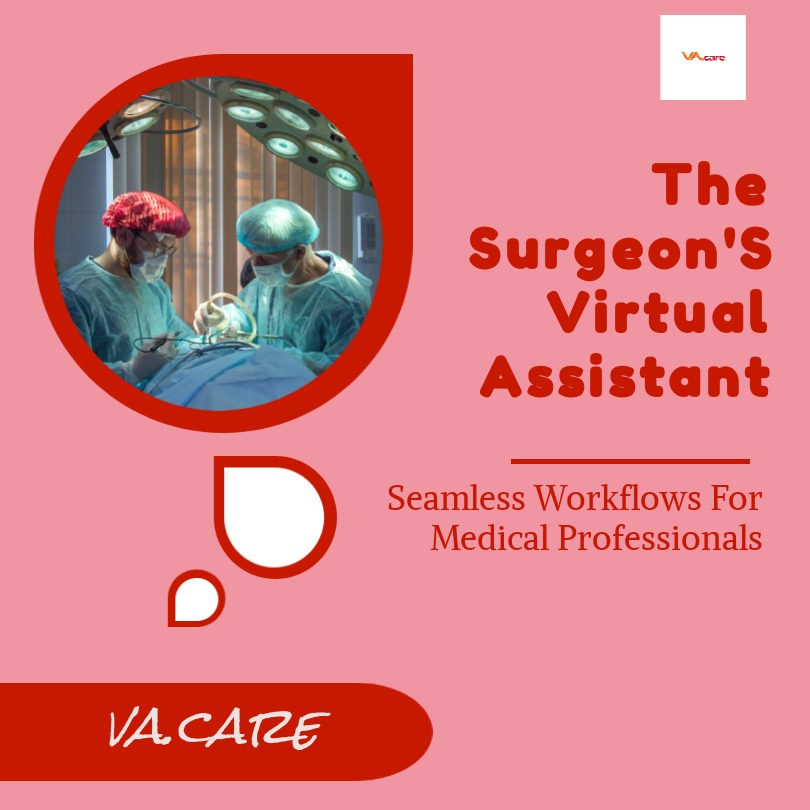Artificial intelligence (AI) and AI-powered VAs are making waves in many industries, including healthcare. AI is a combination of technologies that mimic the mental capabilities of humans, making it possible for healthcare providers to make use of large amounts of data in their decision making process. remove all passive voice without change my original content meaning and content please and dont be change the transition word

AI-powered virtual assistant for surgeons help organize and manage data, using natural language processing and machine learning. This technology is widely used in various health fields, including neurology, cardiology, and oncology.
Doctors and nurses now use technology to streamline manual tasks, allowing them to focus on delivering better care to patients. With the increasing amount of data available, advanced techniques have replaced traditional methods of analysis, leading to improved medical decision making.
The integration of technology and the human mind, without the need for keyboards or monitors, has revolutionized the medical field. It not only covers medical concerns, but also makes managerial tasks easier. The remarkable dedication of AI to life and death medical concerns is truly remarkable.
Difference between virtual assistant for surgeons and Smart Advisers
VAs are a type of digital technology that helps people with various tasks. People also call them digital personal assistants or simply assistants. Developers program these virtual assistants using artificial intelligence (AI) to perform administrative tasks that administrative assistants or managers typically handle.
Another type of AI-powered technology, similar to virtual assistants, is smart advisers. Unlike virtual assistants, which focus on completing specific tasks, smart advisers offer information and advice on a particular subject. Understanding the distinction between the two helps determine which technology best suits your needs.
Popular AI-Powered Virtual Assistants and Their Functionality
There are different types of technology that provide virtual assistance. Companies like Google, Amazon, and Microsoft offer some popular examples. To use the Amazon virtual assistant, called Alexa, users simply say the “wake word” (Alexa), and the device lights up to show it’s ready to receive commands. These commands include simple requests, such as “play pop music” or “what’s the weather today.” Alexa processes these requests using Amazon’s cloud.
The technology behind AI-powered virtual assistants relies on a large amount of data to function properly. It includes advanced tools and platforms such as natural language processing, machine learning, and speech recognition. The user communicates with the AI assistant, and the AI analyzes the provided data using advanced algorithms to make the best guess about the user’s intent.
Impact of AI in the Medical and Healthcare Industry
Artificial Intelligence (AI) is making a big impact in the medical and healthcare industry. It helps human doctors and transforms their roles. Reports show that the AI healthcare market grows at a rate of 40% each year, and it can reduce treatment costs by half while improving healthcare outcomes by 30–40%. Accenture also found that AI-powered virtual assistants for surgeons play a crucial role in healthcare. By 2026, experts expect AI to generate $150 billion in profits for the US healthcare economy.
AI is also changing how medical professionals manage information. It automates traditional procedures and makes data retrieval easier for doctors. This happens because AI supports voice detection, natural language processing, and data collection. Additionally, AI is transforming how doctors manage patients. With its help, they can prevent harmful drug combinations, overdoses, or allergic reactions. Doctors can store all of this information in the cloud for easy access.
AI is also having a major impact on medical imaging diagnostics. It can help with the interpretation of images captured by scanning devices like MRI, CT scans, and X-rays. AI can also help identify irregularities and distinguish between non-cancerous and cancerous cells. This makes it easier for doctors to make accurate diagnoses and treatment plans.
Virtual health assistance is another area where AI is making a difference. AI-powered medical virtual assistants (MVA) and intelligent virtual assistant for surgeons are helping patients manage their health. They can remind patients to take their medicine, offer medical help for common complaints, and even communicate with doctors virtually. There are also chatbot services that can answer health-related questions and provide emergency care if needed. Companies like Microsoft and IBM are working on improving these AI-powered virtual health assistants.
AI can aid physicians during surgeries, especially those that are intricate or challenging, as a valuable tool. AI-powered virtual assistants provide real-time data during the procedure, helping reduce risks and improve the overall quality of the surgery. Additionally, robot hands perform the surgery with precision and minimize any shaking from the surgeon’s hands.
Moreover, AI can also monitor a patient’s health even after the surgery ends. The virtual assistant for surgeons continues to observe and track the patient’s vital signs, ensuring that the system maintains their health even when doctors and nurses rest.
Furthermore, AI helps shift healthcare from a reactive to a proactive approach. In a reactive approach, doctors initiate treatment only after detecting a disease. For example, a patient may visit a doctor with cancer symptoms, and only then do they begin receiving treatment such as chemotherapy or radiation. In a proactive approach, doctors study a patient’s complete medical history, highlight high-risk markers for various diseases, and monitor patients with higher risk levels for any changes in their health. If they detect anything concerning, the AI assistant recommends medical intervention.
There are also AI-powered apps that can encourage patients to be more proactive in their own health. For instance, the app PeerWell motivates people to take control of their health and provides recommendations for improvement. There are also situation-specific AI apps for conditions such as congenital heart diseases, palliative care, and diabetes control. These apps aim to empower patients to take an active role in their own health, rather than relying solely on their doctor.
Benefits of AI in Healthcare
AI is helping healthcare advance in many ways. Let us examine some of the most crucial benefits for both patients and physicians.
Predictive Healthcare
With predictive healthcare, doctors can review a patient’s complete data to look for any abnormalities and decide on the best course of treatment.
Personalized Vaccination
Thanks to AI, patients can now receive healthcare that is customized to their individual needs and medical history. For example, in 2017, a woman with a rare form of leukemia was treated with the help of IBM’s cognitive supercomputer, Watson. The treatment recommendation was given within just 10 minutes after reviewing 20 million cancer analysis reports.
Improved Diagnosis
AI helps doctors diagnose diseases more accurately by quickly cross-referencing and researching patient records. This information can include sensor and geospatial data, handwritten notes, test results, and factors related to the environment.
Advanced Treatment Plans
AI is leading to the development of new and innovative treatment approaches, such as cell biology, robotic surgery, stem therapy, proteomics, and genomics. Some examples include:
- A synthetic pancreas to control blood glucose levels and deliver insulin
- Eye drops to dissolve cataracts instead of undergoing surgery
- Wound healing through imprinting skin cells, reproducing blood vessels, and 3D printing of human body parts
Lower Hospital Stay
Continuous monitoring of patients using AI can lead to quicker treatment and care, which can reduce hospital stay. AI-based applications can monitor patients’ health and detect any critical symptoms, even for very sick patients, before medical intervention is needed.
Lower Cost for Hospitals and Patients
AI-powered virtual assistants can make healthcare more affordable and efficient by:
- Helping with accurate diagnosis
- Providing more reliable treatment options
- Supporting patients in making informed decisions about their health
- Facilitating the development of new drugs.
Challenges in Implementing AI in Healthcare
Despite its benefits, AI in healthcare faces some challenges. Here are some of the problems that need to be addressed:
Risk Involved
There is always a possibility of something going wrong. What if the algorithms make a mistake and harm people? AI needs to have proper security measures so it does not harm anyone. Doctors also need to be available for situations that AI cannot handle. What if there is a security breach? All these risks need to be taken into consideration.
Patient and Doctor Comfort
Using AI to monitor health can be concerning for patients, and doctors may feel uncomfortable relying on AI.
Expertise and Training
To fully benefit from AI, patients need to have some knowledge and training in using the technology. However, this could be a challenge for some.
Patient Data Security
Even with proper security measures, there is always a risk of hackers accessing sensitive patient information. This can put patients in danger if their data is erased, changed, or stolen.
Complying With Government Standards
For AI to be widely accepted in healthcare, it must comply with government standards for patient safety and privacy. This includes ensuring that patient data is accessible and stored securely.
AI is transforming the healthcare industry by changing the role of both patients and doctors. However, challenges still exist and need to be addressed for AI to be fully utilized in healthcare.




